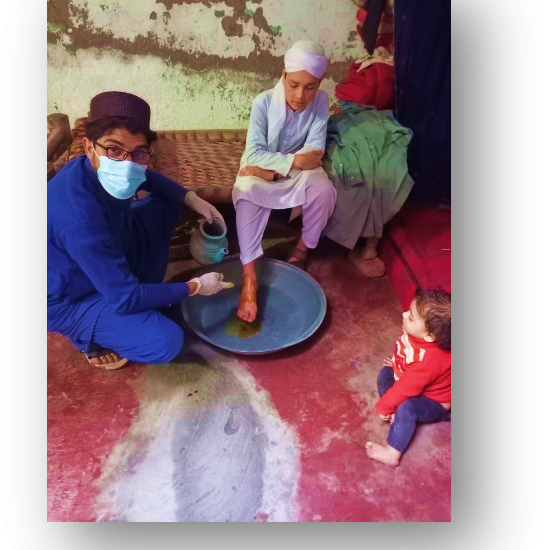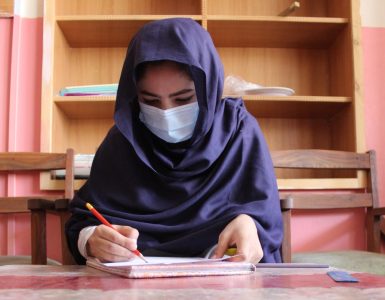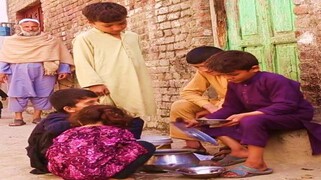
Afghan refugees have been living in refugee camps in Pakistan for the past four decades. They need basic services, including healthcare, education and job opportunities. The most significant problem that these Afghan refugees face is timely access to health facilities in case of emergency. There are no health facilities in the refugee villages, so people must go to big cities to receive medical care. People in these villages are extremely poor and unable to cover the costs of transportation and medicines.
OVERVIEW
With support from Western Union, International Medical Corps conducted several first aid training sessions as part of the “Building Resilience, Preparedness and Disaster Readiness” project in Khyber Pakhtunkhwa (KP) province in Pakistan. The purpose of the project was to strengthen resilience and preparedness among Afghan refugees living in refugee villages in KP province by providing them with the necessary knowledge and skills to combat disasters.
INFORMATION ABOUT THE BENEFICIARY
Abdul Haleem lives in the village of Baghbanan in Peshawar district. His family immigrated to Pakistan during the war with the former Soviet Union. Abdul was born in Pakistan. His father, Noor Agha, is a religious scholar from Nangarhar, Afghanistan and a teacher in a local madrassa (religious school). Abdul is the father of four children (two sons and two daughters).He works as an outreach worker in a health facility.
INTERNATIONAL MEDICAL CORPS’ ASSISTANCE AND HOW IT HELPED
Abdul Haleem is a community volunteer who participated in the first aid and transport training program and demonstrated a passion for learning. When field staff from International Medical Corps visited him, he expressed gratitude for the first aid training and shared his experience of a child being burned by boiled tea in the local madrassa. He explained that before this training, they treated burns with toothpaste and mustard oil, which was an incorrect technique. After the training, when a child was burned, he washed the burned area with cold water, administered dressing and bandages to protect the wound from infection and took the burn victim to the hospital because it was a second-degree burn.
“The training was really beneficial,” said Abdul. “This training should be required for students in madrassas.
International Medical Corps provided first aid training to more than 1,000 community volunteers (703 male and 321 female) in seven Afghan refugee villages in three districts: Peshawar, Haripur and Lower Dir. In addition, after the training sessions, first aid kits were given to the community volunteers, enabling them to serve as first responders in their communities.





